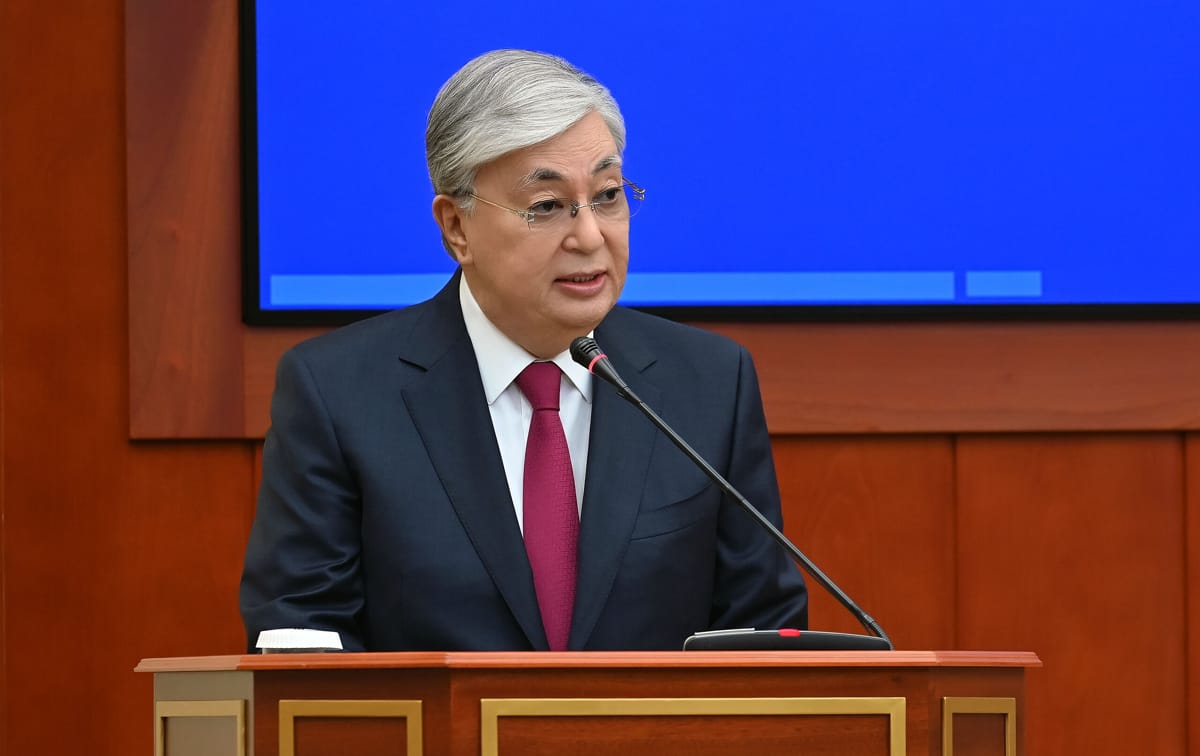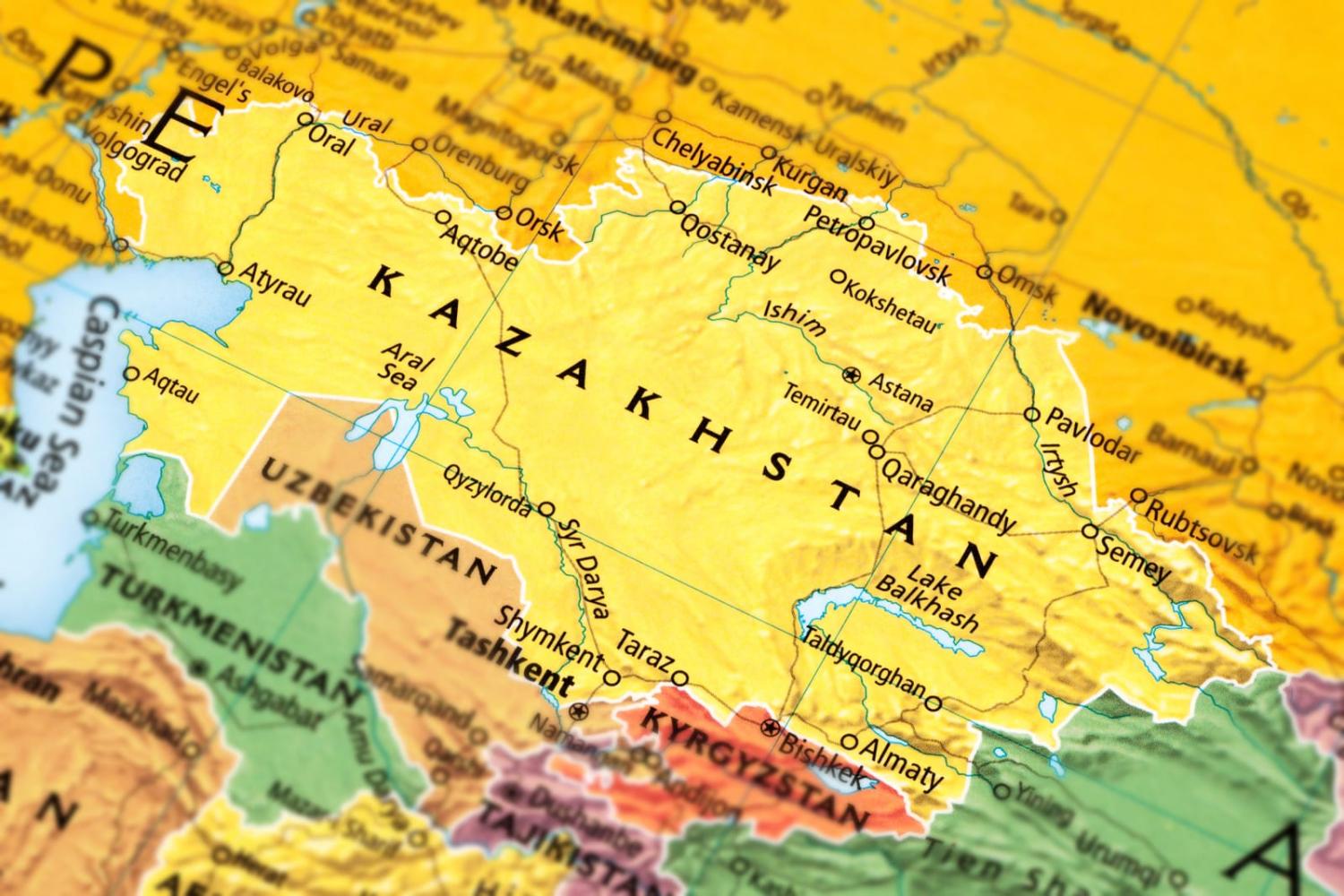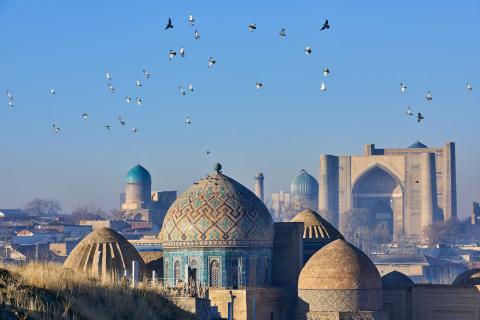The global significance of Central Asia has been steadily growing. The past year, marked by the tumultuous war in Ukraine and the ensuing confrontation between Russia and the West, has not only reshaped Eurasia’s political landscape but has also highlighted the increasingly critical role of Central Asia in the intricate balance of power between East and West.
Among the Central Asian states, Kazakhstan stands out as the largest and a key player. This heightened importance of Central Asia has not gone unnoticed by Western countries, as evidenced by several high-profile visits to the region. The presidents of France and Germany, as well as the foreign ministers of the United States and United Kingdom, have made trips to the region over the past year, signifying a growing recognition of its strategic value and potential as a partner in various domains, from security to economic collaboration.
Kazakhstan holds a strategic location between the colossal economies of Europe and Asia. This is particularly evident in the development of alternative trade routes such as the Trans-Caspian International Transport Route. This route, extending from Europe through Kazakhstan, the Caspian Sea, Azerbaijan, and Georgia, and then via the Black Sea to Türkiye, offers a new artery for the flow of goods. This reduces reliance on traditional, now contentious, paths and could help Europeans regain energy security and diversify international land freight lines. The significance of these routes has been magnified in the wake of the Ukrainian crisis. It’s noteworthy that more than 80 per cent of goods from China and Central Asia currently exported to Europe pass through Kazakhstan.
Central Asia is also poised to become a key supplier of vital metals and rare earth minerals, increasingly coveted by Western industries. Kazakh companies are already producing 18 out of the 30 rare earth materials crucial for the EU economy, including titanium, beryllium, tantalum, and niobium. This role was recently highlighted by French President Emmanuel Macron’s visit to Kazakhstan in November, which culminated in significant deals for France to purchase these essential minerals and metals. In the present era, where technological advancement is of paramount importance, securing access to these resources transcends mere economic interest and becomes a strategic imperative.
For its part, Kazakhstan’s strategic approach is notably nuanced. The country’s “multi-vector foreign policy”, as President Kassym-Jomart Tokayev calls it, seeks to maintain amicable relations with major global powers – Russia, China, the European Union, and the United States. While not openly supporting Russia’s actions in Ukraine, it has also sought to avoid exacerbating tensions with its neighbour. It has taken measures to stop the circumvention of Western sanctions against Russia, including checks and balances in its financial and trade systems to ensure compliance with international sanctions.

Kazakhstan is also aiming to position itself as a middle power capable of influencing international affairs. This ambition was underscored by the country hosting the Astana International Forum (AIF) this year, with plans to host the AIF again in 2024. The event brought together other middle powers to deliberate on pressing global issues, such as economic development, security challenges, and environmental sustainability.
Recognising the growing significance of Central Asia, the United States has taken substantial steps to deepen its engagement with the region. US President Joe Biden’s participated in the C5+1 forum in September, hosting the heads of Central Asian states in New York. This marked the first time a US President actively participated in such a forum, discussing issues such as regional security, economic cooperation, and sustainable development, and signalling a heightened US interest and commitment to the region.
The region, with its wealth of natural resources, is an attractive partner for Western economies seeking to diversify their supply chains. The West can collaborate with Central Asian countries in developing sustainable energy sources, contributing to global efforts against climate change, and ensuring energy security. Beyond economic interests, the region’s strategic location makes it a vital player in global security and stability. The West can benefit from engaging with Central Asia in areas such as counterterrorism, combating drug trafficking, and addressing environmental challenges.
The West, recognising the evolving geopolitical landscape, should seize the opportunity to forge deeper ties with this region. By cultivating mutually beneficial partnerships with Central Asian nations, the West can not only enrich its own interests but also contribute to shaping a more interconnected world stage.

